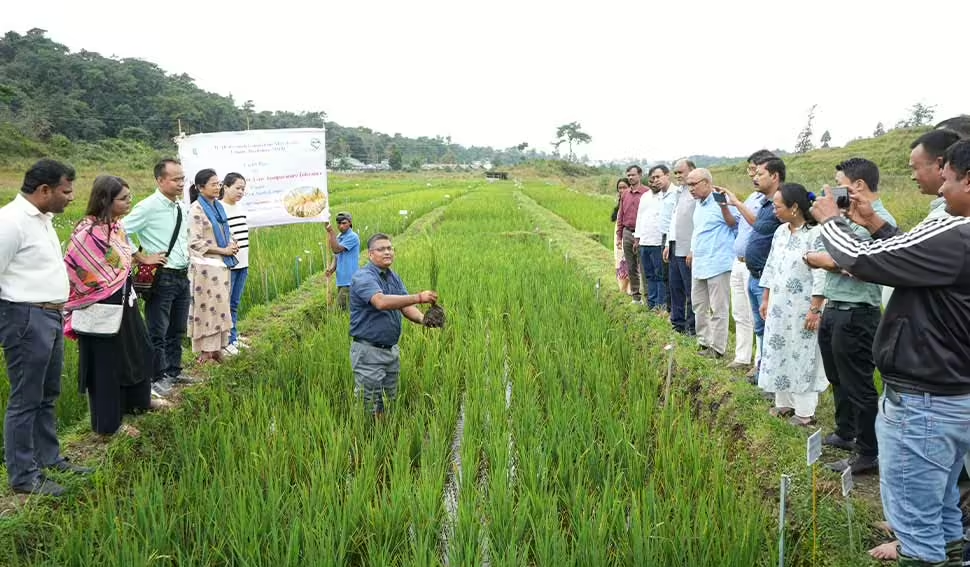ICAR organized field day on “Rice Improvement for Low Temperature Tolerance” at upper Shillong

Rice is the main staple food crop of Meghalaya covering 1.11 lakh ha.
The cultivation of rice in Meghalaya is practiced in various ecologies and altitudes ranging from 150 meters to 1965 meters above mean sea level. High altitudes and low temperatures significantly reduces the production and productivity of the crop.
In order to address this problem, ICAR Research complex for NEH region has been actively involved in developing of rice varieties tolerant to low temperature stress.
Varieties like, NEH Megha rice 1, NEH Megha rice 2 and NEH Megha rice 3, were released based on their tolerance to low temperature stress. However the productivity of these varieties was not as desired.
Varietal development programme was initiated utilizing various landraces namely, Khonorullu, Abore, Kuki and released varieties in order to enhance the yield potential under low temperature conditions prevalent at higher altitudes.
High performing crosses in advanced generations, derived from the identified parental lines were selected and multiplied.
Also, the identified germplasm and indica-japonica crosses were selected based on their performances.
Keeping this in mind, a field day was organized to visualize the developments undertaken for high yielding and low temperature stress tolerance rice varieties at the divisional experimental farm situated at Upper Shillong yesterday.
The programme was attended by both farmers and scientists for the institute.
Dr. Amit Kumar, Senior scientist Plant Breeding demonstrated the various advance breeding lines with promising performance for tolerance to low temperature cum high yield potential.
Dr. VK Mishra, Director of the institute enlightened the scientists and farmers with encouraging messages and stressed on the importance of breeding tolerance rice variety for low temperature involving multidisciplinary team approach.

Leave a Reply